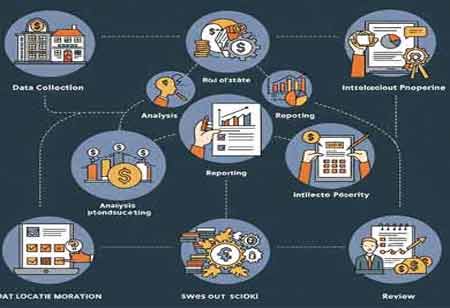CLOSE
Specials
- RegTech Europe
- Financial Risk Management APAC
- Investment Banking APAC
- Corporate Advisory APAC
- Regtech APAC
- Escrow Services
- Digital Banking Latam
- Trading Solutions APAC
- Treasury Management Europe
- CPA Firms Canada
- Financial Risk Management Europe
- Mortgage Broker
- Financial Licensing Europe
- RIA Advisory Europe
- FinTech Canada
- Financial Asset Management APAC
- Investment Banking Canada
- Payment Solution
- Lending Mangment Latam
- Payment Solution Europe
- Broker Dealer Firms Canada
- Alternative Investments Canada
- Financial Fraud
- Investment Management Latam
- Financial Health Europe
- Lending mangment
- Financial Marketing
- Proprietary Trading Europe
- Wealth Management
- FinTech
- Financial Brokerage Firm APAC
- Investment Advisory Europe
- Investment Advisory APAC
- Wealth Management MENA
- Claim Adjusting
- Claim Adjusting APAC
- Mergers and Acquisitions Consulting APAC
- Equipment Financing
- CPA Firms
- Mergers and Acquisitions Consulting Canada
- Investment Services
- Valuation Services Canada
- Wealth Management APAC
- Broker Dealer Firms
- Debt Collection Agencies
- Mergers and Acquisitions Consulting
- FinTech Europe
- Fintech Latam
- Financial Planning / Retirement
- Investment Management
- Financial Compliance
- Digital Banking Europe
- CFO Services
- Debt Collection Agencies Europe
- Wealth Management Europe
- Mergers and Acquisitions Consulting Europe
- Financial Restructuring Europe
- Financial Portfolio Management Canada
- Business Loan
- Payment and Card Latam
- Wealth Management Latam
- Mergers and Acquisitions Consulting Latam
- Tax Advisory Canada
- Trading Solutions Europe
- Alternative Investments
- Digital Insurance Europe
- Investment Services Latam
Weekly Brief
×Be first to read the latest tech news, Industry Leader's Insights, and CIO interviews of medium and large enterprises exclusively from Financial Services Review
Thank you for Subscribing to Financial Services Review Weekly Brief
Digital Valuation in Canada: Unlocking New Heights in Financial Decision-Making
Digital valuation helps mitigate risks associated with financial decision-making.

By
Financial Services Review | Thursday, July 24, 2025
Stay ahead of the industry with exclusive feature stories on the top companies, expert insights and the latest news delivered straight to your inbox. Subscribe today.
Fremont, CA: Canada's financial landscape is becoming increasingly complex, and digital valuation has emerged as a significant tool for addressing challenges in financial decision-making. By utilizing advanced technology, organizations can acquire accurate and timely insights into the valuation of assets and businesses. This capability enables them to navigate the intricacies associated with market volatility, diverse asset classes, and incomplete information.
Enhancing Accuracy and Speed
One of the standout advantages of digital valuation is its ability to provide accuracy and consistency. Traditional valuation methods rely on manual processes vulnerable to human error and subjectivity. In contrast, digital valuation employs standardized algorithms that precisely analyze large volumes of data. This method reduces discrepancies and ensures consistent results across various valuations, making it easier for organizations to assess assets, evaluate investments, and formulate strategies.
Speed is critical in financial transactions, such as mergers, acquisitions, or loan approvals, where timely decisions can mean the difference between seizing opportunities or missing out. Digital valuation tools automate the analysis of financial statements and market trends, delivering results much faster than traditional methods. This swift processing capability enables decision-makers to capitalize on competitive advantages and act promptly in a fast-paced environment.
Fostering Transparency in Valuation Processes
Transparency is a fundamental aspect that digital valuation significantly enhances. Digital tools foster trust and confidence among stakeholders, including lenders, investors, and regulators, by providing clear methodologies and detailed reports. With comprehensive insights into how valuations are formulated, all parties can feel more secure in their decisions, promoting better collaboration and aligning expectations during financial transactions.
In addition, digital valuation aids in evaluating complex and intangible assets, which have become increasingly significant in today’s business world. Valuing assets like intellectual property and brand value can be particularly challenging due to their lack of standardized metrics. Digital tools utilize innovative models that factor in market reach and innovation potential, ensuring more accurate assessments of these intangible resources.
Mitigating Risks and Improving Cost Efficiency
Digital valuation's ability to provide detailed, data-driven insights allows organizations to identify potential risks, including overvalued assets or unfavorable market trends. This risk assessment capability empowers businesses to make informed decisions, avoid costly errors, and allocate resources more effectively. Such risk mitigation is valuable for portfolio management and long-term strategic planning.
Additionally, cost efficiency is a significant benefit of adopting digital valuation. Traditional valuation processes can be labor-intensive and expensive, but digital tools streamline the process and reduce the need for extensive manpower. Digital valuation equips Canadian organizations to tackle financial complexities confidently by integrating real-time data analysis and innovative models. Embracing these tools enhances decision-making and ensures sustained success in an ever-evolving economic landscape.

Copyright © 2025 Financial Services Review. All rights reserved





